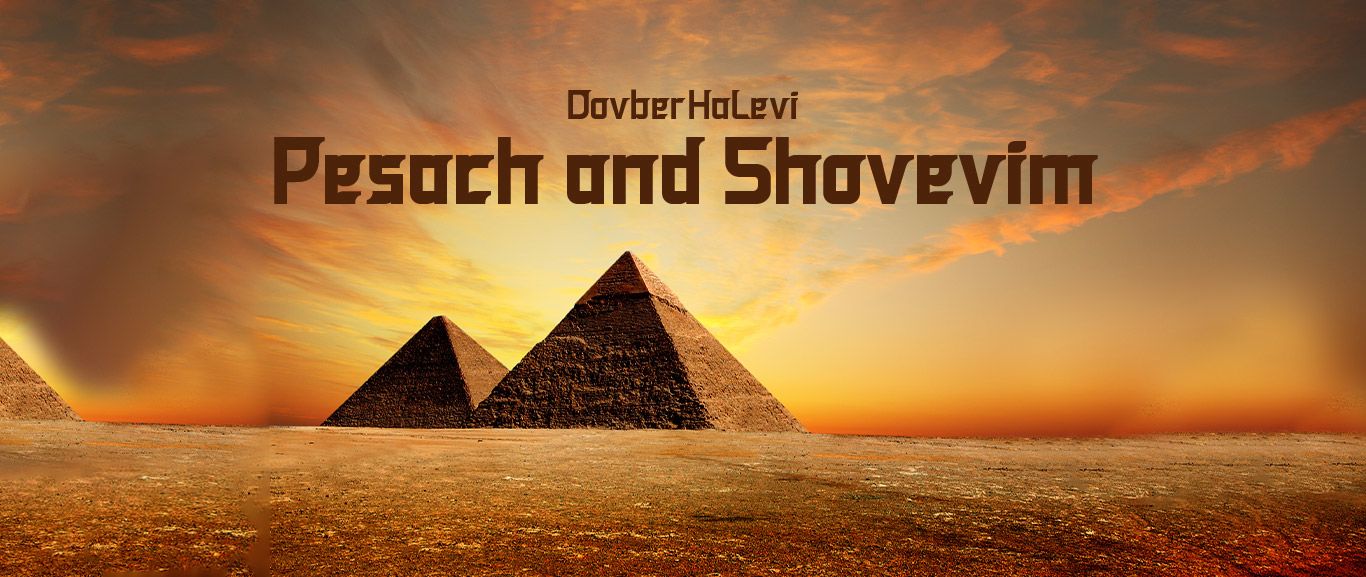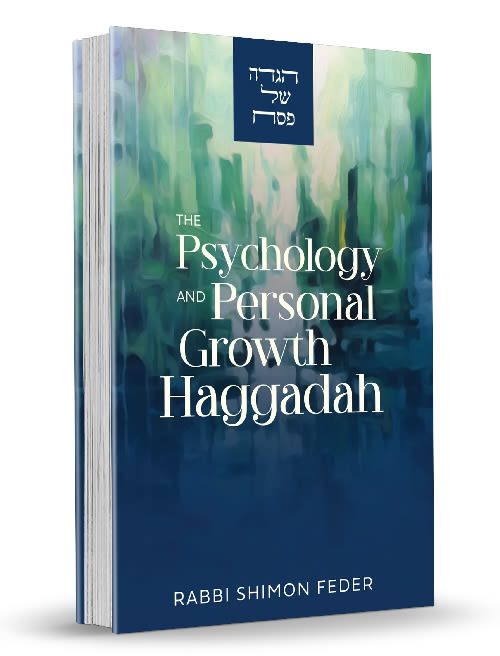
Pesach and Shovevim
The great Egyptian subjugation began when we chose to enslave ourselves; slavery begins with a choice and ends in losing the free will to choose…

Every Pesach we open the Haggadah and recall the events of our Egyptian slavery and Hashem’s Redemption.
A couple of months before, we read the Torah portions that recall the Exodus from Egypt. The six portions are called Shovavim. Shovavim is an acronym for the six parts of the Book of Exodus which chronicle our enslavement, salvation, and ultimate freedom in receiving the Torah. The six week period is also the ideal time for correcting ourselves from the sins of personal unholiness.
Why is the best time for teshuva while we are retelling the story of our enslavement and freedom, both during Shovevim and the weeks that precede Passover?
Is the process of overcoming the desire for sin itself connected to the process of emancipation?
To become subordinate to a desire is like a personal bondage. When a desire hits us and we cannot resist, we lose our ability to choose. Even when the consequences are serious we still can’t act rationally. Say we have an insurmountable desire to overeat. When we feel hungry we will not be able to moderate our portions. It won’t matter that we run the risk of breaking a diet, becoming obese, or Hashem forbid, contracting diabetes. In becoming hooked, we give up the ability to act in our own interests.
This is the textbook definition of slavery.
There is a Midrash that tells us that the Jews in Egypt were not enslaved. The Pharaoh needed workers for his national building projects. He asked for loyal citizens. The Jews eagerly volunteered to prove their loyalty to the nation. The Egyptians, seeing how hard the Jews were working, eventually got tired of the manual labor and left it for us to complete.
The great Egyptian subjugation began when we chose to enslave ourselves. Like chocolate, drugs, alcohol, or personal unholiness, slavery begins with a choice and ends in losing the free will to choose.
The process of Egyptian bondage started when we chose to assimilate into Egyptian life. In doing so, we acted to nullify our Covenant with Avraham. To rectify this sin, we must choose to separate out of that culture, and improve our personal holiness. This mitzvah is called Shmirat HaBrit because it separates us from the nations and reaffirms the Covenant Hashem made with Avraham our forefather.
Redemption isn’t easy, but it’s entirely possible. Egypt was the superpower of the day. The Jews were helpless. We had to be resolute in our drive to become a free people. We had to have emuna in Hashem that we were doing the right thing by continuing to petition Pharaoh for freedom. We had to have total faith in our Father when we sprayed lambs blood on our doorposts and enraged every Egyptian man, woman, and child by mocking the very foundation of their way of life. It took complete emuna that we are doing the right thing and that Hashem will fight these wars with us at every moment. It was not until the first Jew marched into the Sea of Reeds and kept walking that Hashem split the waters.
Traveling towards freedom can be even more difficult than breaking out of the bonds of enslavement. When we finally did make it out of the darkness and into the unknowns of a new life, we needed Hashem’s help more than ever. Things are easier when we are connected to what we are accustomed to most. Once we lose it, even if it is for a greater purpose, we feel some emptiness. This is one of the great tests of freedom. How many times did our ancestors look back and “remember the great things we had” in Egypt?
When we have the determination to grow, resoluteness to stay the path amidst the many tests on the way, and emuna that Hashem is with us on our journey, we will see miracles along the way that will enable us to continue.
Then there is freedom. Our transformation into a new being. A revived entity with choices, hopes, ambitions — and a newfound resolve to make these dreams become real.
Who would have ever imagined that a group of helpless slaves would play an integral role in the destruction of the most powerful empire on earth?
Who would have thought we Jews would have endured the trials and tribulations of the last 2,000 years and  survived intact?
survived intact?
With internet, TV, movies, music, Facebook, and a $100 billion media juggernaut which feeds off of our every instance of personal unholiness, who would believe any of us can overcome the temptations of this world day in and day out?
As long as we strive to take the next step towards individual salvation, Hashem will send us another miracle to inch even closer. With Hashem’s help, this is the year of our personal redemption. This year we will all break free from Egypt, amen!
* * *
Dovber Halevi is the author of the financial book, How to Survive the Coming Decade of Anxiety. He writes for Breslev Israel and The Middle East Magazine. He lives with his wife and two children in Eretz Yisrael.











